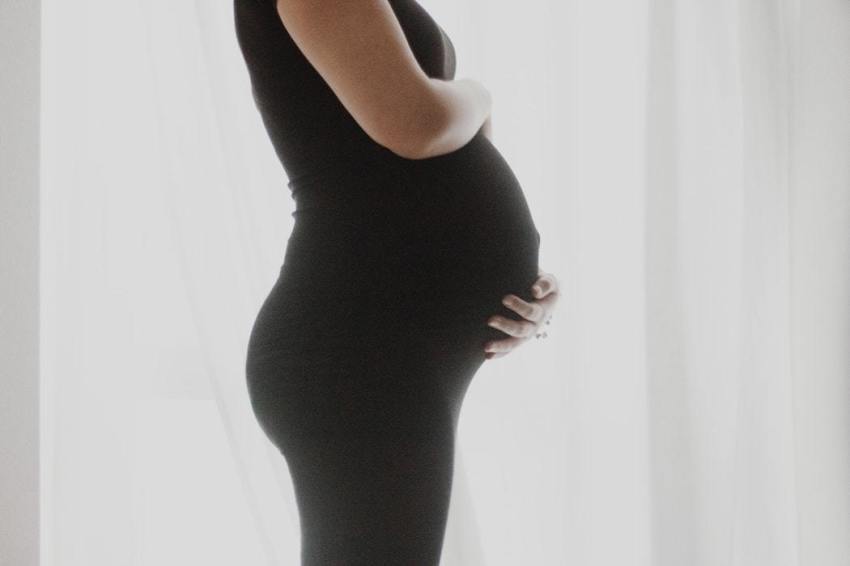US among 8 nations to allow abortion up to birth: ‘In company of brutal communist countries’

Despite outrage from pro-choice advocates over abortion bans in some states following the Supreme Court ruling that determined the Constitution doesn't contain a right to abortion, the U.S. remains one of only eight countries that still allow abortion up to birth.
The Charlotte Lozier Institute, the research arm of the pro-life advocacy group Susan B. Anthony Pro-Life America, released a report last week titled “Gestational Limits on Abortion in the United States Compared to International Norms.” The report, an update of findings previously published in 2014, lists the U.S. as one of just eight nations that permit abortions well into the latter stages of pregnancy.
“Of 193 [United Nations] countries, The United States is one of eight countries that allows, at the federal level, abortion on demand without any gestational limits along with Australia, Canada, China, Guinea-Bissau, Mexico, South Korea, and Vietnam,” the report stated. An additional seven countries allow abortions beyond 15 weeks gestation, but all of them prohibit abortions in the third trimester of pregnancy or earlier: France, Sweden, New Zealand, Iceland, the Netherlands, Colombia and Singapore.
Restrictions in those countries range from 16 weeks in France to 24 weeks in Colombia and Singapore. On the other hand, abortion is completely prohibited in Andorra, Malta and Vatican City.
In a statement shared with The Christian Post, study authors Mary Harned and Mia Steupert remarked, “Our report makes one thing clear: the United States is a global outlier when it comes to abortion.” According to the authors, “With no federal gestational limit on abortion and abortion on demand past 15 weeks in 29 states, U.S. abortion law is far more permissive than that of most countries in the world.”
“In the 10 years since our previous analysis, we remain in the company of brutal communist countries like China who have no limits, even for painful late-term abortions. The U.S. should be an international leader when it comes to human rights and dignity of life, not standing alongside human rights abusers.”
As noted throughout the report, the nation's status as one of eight countries that allow late-term abortions comes two years after the Dobbs v. Jackson Women’s Health Organizationdecision that determined the U.S. Constitution does not contain a right to abortion. This overruled the 1973 Roe v. Wade ruling, which usurped state laws and legalized abortion nationwide.
Following the Dobbs decision, states have taken divergent paths on abortion. Data from the pro-abortion Guttmacher Institute show that nearly two dozen states have implemented restrictions on abortion.
These laws range from near-total bans in some states, including Alabama, Arkansas, Idaho, Indiana, Kentucky, Louisiana, Mississippi, Missouri, North Dakota, Oklahoma, South Carolina, South Dakota, Tennessee, Texas and West Virginia, to six-week abortion bans in Florida and Georgia, and 12-week abortion bans in Nebraska and North Carolina, and a 15-week abortion ban in Arizona.
While Arizona, Utah and Wyoming have near-total abortion bans tied up in court and Iowa has a six-week abortion ban in litigation, they have less restrictive abortion regulations in place. Meanwhile, the Guttmacher Institute lists Colorado, New Jersey, Oregon and Vermont as the four states, along with the District of Columbia, that allow abortion “throughout pregnancy,” meaning that abortion is permitted up to the moment of birth in some cases.
Sen. Lindsey Graham, R-S.C., introduced a federal 15-week abortion ban in 2022, less than three months after the Dobbs decision, in an attempt to make U.S. abortion law more in line with that of the rest of the world. However, the legislation has failed to pick up steam in light of the fact that Democrats, who oppose abortion limits, control the Senate and the presidency.
Even if there were a Republican-controlled U.S. House of Representatives, Senate and presidency, the prospect of a federal 15-week abortion ban seems unlikely. Former President Donald Trump, the presumptive Republican nominee, has repeatedly insisted that he would leave abortion policy up to individual states should he win the 2024 presidential election.
Ryan Foley is a reporter for The Christian Post. He can be reached at: ryan.foley@christianpost.com



























